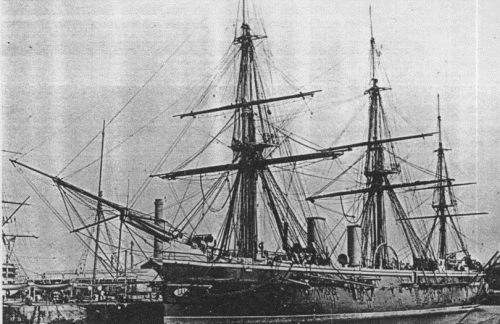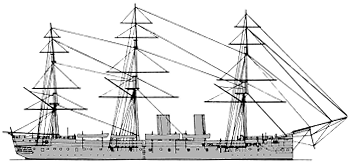
NAVYPEDIA
 Support the project with paypal
Support the project with paypal
Photo

Bacchante in early 1880s
Ships
| Name | No | Yard No | Builder | Laid down | Launched | Comp | Fate |
|---|---|---|---|---|---|---|---|
| Boadicea | Portsmouth DYd | 30.1.1873 | 16.10.1875 | 5.1877 | sold to BU 1.1905 | ||
| Bacchante | Portsmouth DYd | 15.3.1873 | 19.10.1876 | 7.1879 | sold to BU 5.1897 | ||
| Euryalus | Chatham DYd | 11.1873 | 31.1.1877 | 6.1878 | sold to BU 5.1897 |
Technical data
| Displacement normal, t | Boadicea: 3913 Bacchante: 4070 Euryalus: 3932 |
|---|---|
| Displacement full, t |
|
| Length, m | 85.3 pp |
| Breadth, m | Boadicea: 13.7 Bacchante, Euryalus: 13.9 |
| Draught, m | Boadicea: 7.21 Bacchante: 7.23 Euryalus: 7.08 |
| No of shafts | 1 (hoisting) |
| Machinery | sails + 1 3-cyl HC, return connecting rod, 10 cylindrical boilers |
| Power, h. p. | Boadicea: 5134 Bacchante: 5416 Euryalus: 5109 |
| Max speed, kts | Boadicea: 14.8 Bacchante: 15.1 Euryalus: 14.7 |
| Fuel, t | coal 550 - 570 |
| Endurance, nm(kts) | 3000(10) |
| Armament | Boadicea, Euryalus: 16 x 1 - 178/14 90cwt MLR, 2 x 1 - 160/16 64pdr 64cwt MLR Bacchante: 16 x 1 - 178/14 90cwt MLR |
| Complement | 375 |
Standard scale images

Euryalus 1878
Graphics
Project history
Designed by Nathaniel Barnaby. The large iron frigates were somewhat of a misfit in the fleet and therefore it was decided to scale down the size of cruising ships. These vessels were the same length as Rover but with a slight increase in beam and much fuller lines towards the extremities. At the time of completion, they were the largest ships to receive compound engines. Under sail they were not good performers, but this was acceptable in view of the far greater efficiency of their engines. All were ship-rigged, the total area of canvas being 3560 m2. Their best logged sailing speeds were: Bacchante 11.5kts; Boadicea 11kts; and Euryalus 9.5kts. The hull construction followed the same pattern as in earlier iron cruisers - without double bottoms or wing compartments. Ten watertight bulkheads rose only up to the main deck level. They were clad in a double layer of teak, Boadicea receiving a double layer throughout and being copper sheathed. In Bacchante and Euryalus the double layer extended to a few feet below the waterline and thereafter a single layer to the keel. Euryalus was copper- and Bacchante zinc-sheathed. It was this single layer of casing below the waterline that explains why Bacchante and Euryalus were given 15cm extra beam. Boadicea had a knee bow, figurehead and fixed bowsprit. All had outward sloping square sterns, rising from the counter. Bacchante and Euryalus had vertical square bows with a running-in bowsprit. All had poops and topgallant forecastles, embrasured for chase guns. They were the last vessels to have their cables enter on the main deck. The rudder was pintle-hung and like other warships of less than 5000t their capstans and steering were manually handled. 14 of the 178mm iron slide-mounted guns were on the main deck as a broadside battery, the other two being oil the upper deck as chase guns. The two 6in 64pdrs in Boadicea and Euryalus were truck-mounted to move to any of six vacant ports on that deck. All three had return connecting-rod type engines, with one HP and two LP cylinders, and ten cylindrical boilers working at 4.9 kgf/cm2, exhausting to two telescopic funnels. Bunkerage at 550/570t gave them a radius of up to 3000nm at 10kts. The hoisting screw was raised by means of a triple iron-girder strongback. This class represented the half way stage between the old and the new, a decisive evolutionary step to the eventual advent of the all-steel cruiser. Although retaining many of the features of a wooden screw frigate, such as rig, leering and conning aft, hoisting screw, and main deck broadsides, the new features were the iron hull and frames, divided into watertight compartments, a protection that set the pattern for ships to follow. They were, in fact, the last ships built of iron for the Royal Navy. A fourth ship, Highflyer, was ordered in August 1878 from Portsmouth DYd but cancelled in 1879 in favour of steel-hulled Canada and Cordelia.
Modernizations
1882-1885, Bacchante: - 4 x 1 - 178/16; + 4 x 1 - 152/26 BL Mk II, 8 x 1 - 76/20 12pdr 8cwt BL, 8 x 6 - 11.4/59, 2- 356 TC
1885 - 1888, Boadicea, Euryalus: - 2 x 1 - 178/16; + 2 x 1 - 152/26 BL Mk II, (6 - 7) x 1 - 76/20 12pdr 8cwt BL, (8 - 11) x 6 - 11.4/59, 2- 356 TC
Naval service
No significant events.
 HOME
HOME FIGHTING SHIPS OF THE WORLD
FIGHTING SHIPS OF THE WORLD UNITED KINGDOM
UNITED KINGDOM CRUISERS
CRUISERS BACCHANTE iron screw corvettes (3, 1877 - 1879)
BACCHANTE iron screw corvettes (3, 1877 - 1879)
